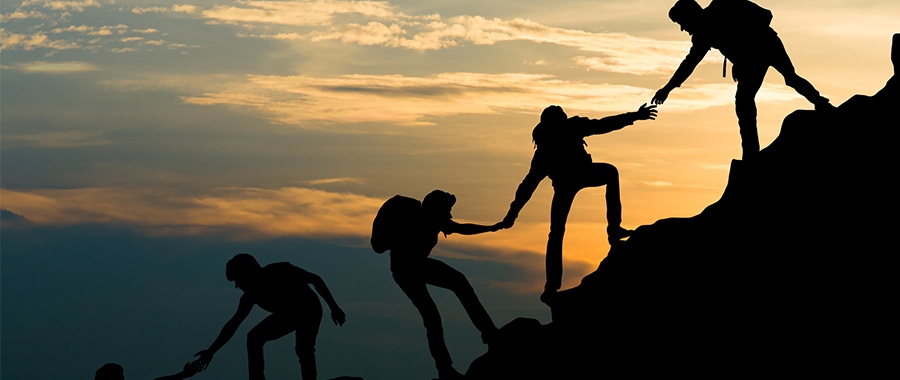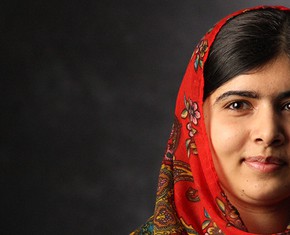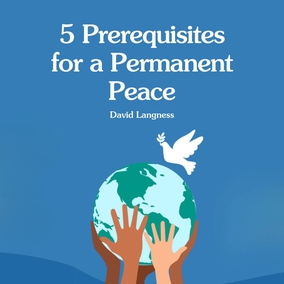The views expressed in our content reflect individual perspectives and do not represent the authoritative views of the Baha'i Faith.
The old truism “Familiarity breeds contempt,” probably means that familiarity lets our guard down, and so we see more of the faults in others than we do their good qualities. Is that still true?
Maybe not. I would posit that the opposite—familiarity breeds respect—seems truer today, because today most of us rely on teamwork and cooperation to accomplish just about any and every task. The Baha’i teachings reinforce this reality:
The supreme need of humanity is cooperation and reciprocity. The stronger the ties of fellowship and solidarity amongst men, the greater will be the power of constructiveness and accomplishment in all the planes of human activity. Without cooperation and reciprocal attitude the individual member of human society remains self-centered, uninspired by altruistic purposes, limited and solitary in development like the animal and plant organisms of the lower kingdoms. – Abdu’l-Baha, The Promulgation of Universal Peace, p. 338.
Hardly any single person could possibly be responsible for all the components that go into producing anything, whether goods or services. You could think of an automobile assembly line as one example, where each function performed perfectly, at every step of the process, adds up to a quality vehicle.
We know that teamwork can boost productivity, provide a support network, encourage innovation, improve morale, attract talent, and establishes strong relationships. We see those traits every day in teams that function well together, whether in business, in sports, or in education. We know that teamwork can also improve service, allow flexibility, teach useful conflict resolution skills—and advance careers. Employers increasingly search for people who can work effectively in teams.
You know yourself, whether married and raising children, working in most offices or even factories or the fields, or participating in local community service projects, that teamwork and cooperation have become indispensable. Working together in teams brings friendship, respect, admiration and gratitude among participants, and allows each to feel needed and fulfilled.
Today we require that kind of teamwork and cooperation more than ever to solve the difficulties facing us. That means respect for the views of others and for the contributions all can make. Even small teams, working at the grassroots on a voluntary basis can, and have, made a difference.
Look at practically any church or other religious ministry, and how it starts with volunteers, developing structure and permanence, and then firmly cementing processes and offerings. Catholic Charities, for example, has been instrumental in helping so many refugees settle and obtain citizenship in their chosen countries, reducing homelessness and poverty. It has done this for millions of people.
Baha’i communities around the globe, beside spreading and establishing Baha’u’llah’s teachings, have also developed permanent institutes and programs for the alleviation of human suffering.
But the attainment of any beneficial goal becomes a chimera unless that goal is grounded not only in good intentions but in solid practicalities.
As history shows, not all “good intentions” have turned out well. In modern times short-term results over future stability and considerations have produced short-term profits and rash solutions to the detriment of many. Even charitable works have backfired, generating negative outcomes despite the intentions behind them. For many gratification must be immediate and complete, patience is hard to find, toleration and acceptance even harder.
Yet, slowly, dramatically, humanity has begun to change its ways. Humanity’s thoughts, actions and concerns have and are evolving toward a wider world consciousness and greater universal values. Well-established institutions like the United Nations, the European Union, the Organization of American States or African States and dozens more have reshaped humanity’s provincial ways and undertaken great world enterprises. Technology and communication are speeding up the process. The grassroots are finding their voices, uprooting outmoded and harmful autocracies and dictatorships. Democracy is more sought after and becoming more refined.
All of this, Baha’is believe, results from Baha’u’llah’s pronouncement a century and a half ago. He said:
The world’s equilibrium hath been upset through the vibrating influence of this most great, this new World Order. Mankind’s ordered life hath been revolutionized through the agency of this unique, this wondrous System—the like of which mortal eyes have never witnessed. – Gleanings from the Writings of Baha’u’llah, p. 136.
Baha’u’llah’s writings, which comprise tens of thousands of pages, delineate a new, divine world order that is destined to realign the fortunes of humankind. It will provide peace, stability, structure and justice. It will ensure the rights of every being on Earth and provide for their well-being while avoiding rigidity and sameness.
This is not a pipe dream, nor founded on humanity’s corrupt inclinations. Every hour of every day Baha’is around the world are working towards its implementation.
The emergent features of this new world order are delineated in the writings of Baha’u’llah and Abdu’l-Baha, and in the letters of Shoghi Effendi and the Universal House of Justice. The institutions of the present-day Baha’i administrative order, which constitute the structural basis of Baha’u’llah’s world order and the model for a global parliament, will gradually mature and evolve into the Bahai World Commonwealth. In this regard, Shoghi Effendi affirms that the administrative order will:
… as its component parts, its organic institutions, begin to function with efficiency and vigor, assert its claim and demonstrate its capacity to be regarded not only as the nucleus but the very pattern of the New World Order destined to embrace in the fullness of time the whole of mankind. – Shoghi Effendi, The World Order of Baha’u’llah, p. 144.
Baha’is believe that this new world order will come about, and is coming about, based on mutual trust and respect, teamwork, cooperation, and a firm sense of fairness and justice.
















Comments
Sign in or create an account
Continue with Googleor